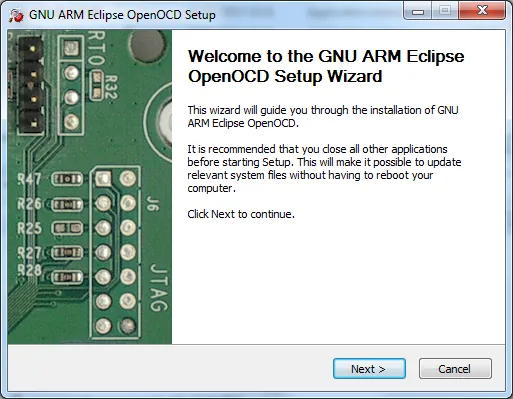OpenOCD (Open On-Chip Debugger) is a powerful open-source tool for on-chip programming and debugging of embedded systems. It supports various hardware platforms and target chips, providing rich features that greatly simplify the embedded development process. This article will delve into OpenOCD, covering its core functionalities, usage methods, and application scenarios.

Powerful Features and Flexible Architecture
OpenOCD adopts a layered architecture, including JTAG interface and TAP support, with the following core functionalities:
-
• (X)SVF Playback: Supports automated boundary scan and FPGA/CPLD programming, facilitating hardware configuration and testing.
-
• Debug Target Support: Supports various processor architectures, such as ARM and MIPS, offering advanced debugging features like step debugging, breakpoints/watches, and gprof performance analysis.
-
• Flash Chip Drivers: Comes with a rich set of Flash chip drivers, supporting various types of Flash memory, such as CFI, NAND, and internal Flash, making program flashing and data reading convenient.
-
• Embedded TCL Interpreter: Integrates a TCL interpreter, allowing users to write scripts to automate debugging processes and improve work efficiency.
-
• Multiple Network Interfaces: Supports various network interfaces such as Telnet, TCL, and GDB, allowing users to interact with OpenOCD in multiple ways. Among them, the GDB server allows OpenOCD to act as a remote target for GDB, enabling source-level debugging and seamless integration with debuggers like GDB.
Quick Start Guide
For commonly used development boards, using OpenOCD is very simple. Just start it with the corresponding configuration file:
openocd -f board/stm32f4discovery.cfgIf you need to connect to a specific adapter and target chip, you will need to specify the corresponding interface and target configuration files:
openocd -f interface/ftdi/jtagkey2.cfg -c "transport select jtag" -f target/ti_calypso.cfgOnce OpenOCD is started, you can connect using GDB for debugging:
(gdb) target extended-remote localhost:3333Comprehensive Documentation and Support
OpenOCD provides extensive documentation, including user guides and developer manuals, making it easy for users to get started and learn in-depth. Users can access information through online documentation or by compiling documentation themselves.
Online documentation links:
-
• OpenOCD User Guide: http://openocd.org/doc/html/index.html
-
• OpenOCD Developer Manual: http://openocd.org/doc/doxygen/html/index.html
Wide Hardware Support
OpenOCD supports a wide range of JTAG adapters and debug targets, including various popular development boards and chips.
-
• JTAG Adapters: Supports numerous mainstream JTAG adapters such as J-Link, ST-LINK, USB-Blaster, etc.
-
• Debug Targets: Supports various processor architectures, including ARM, MIPS, RISC-V, and many specific chip models.
-
• Flash Drivers: Supports various types of Flash memory, including common SPI Flash, NAND Flash, etc.
Installation and Building
The installation of OpenOCD is quite flexible, allowing the use of precompiled binary packages or building from source code. Compiling from source requires certain dependencies, such as the GCC compiler, autotools toolchain, and libraries specific to certain adapters.
Steps to compile OpenOCD:
-
1. Obtain the source code: Clone the repository from GitHub.
-
2. Run
./bootstrap(if building from the Git repository). -
3. Run
./configure [options]to configure build options. -
4. Run
maketo compile. -
5. Run
sudo make installto install (requires root privileges).
Permission Configuration and Precautions
For security reasons, it is recommended not to run OpenOCD with root privileges. For USB devices, you need to configure udev rules using the contrib/60-openocd.rules file and add users to the plugdev group. For parallel port devices, you need to adjust device node permissions.
Conclusion
OpenOCD is a powerful, easy-to-use, and flexible open-source debugging tool that provides great convenience for embedded system development. Its wide hardware support, rich features, and active community support make it an indispensable tool in the field of embedded development.
Project address: https://github.com/raspberrypi/openocd